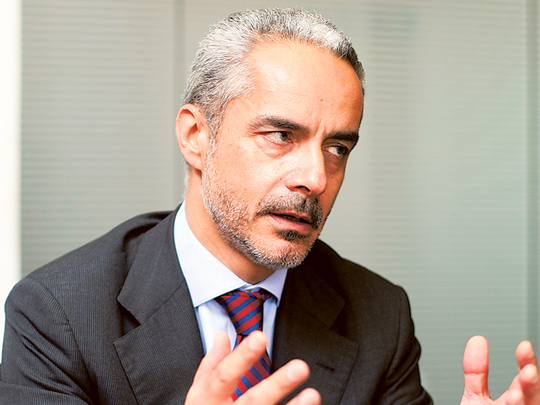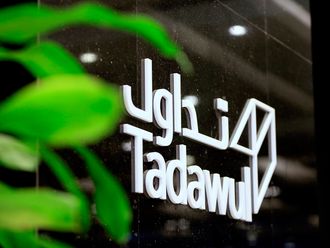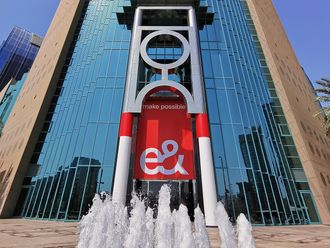
Dubai: The potential of returns in the European stocks is much higher compared to the United States, a senior official at a top private Swiss bank told Gulf News.
The Euro STOXX 50 price has gained more than 15 per cent in the past year, far ahead of the 11.79 per cent gains of the Dow Jones Industrial Average index.
“We favour cyclical sectors like industrials in Europe because they are leveraged,” Jean-sylvain Perrig, senior managing director and head of asset allocation and chief investment officer, private banking with Union Bancaire Privee told Gulf News.
“Valuations in Europe is not that cheap, but we can expect some earnings growth to come on top our expectations. So towards the end of the year, we have positive surprises on earnings growth. Investors are pretty eager to invest in equities, as we could see some more gains at the end of the year,” he said, adding that they like information technology and health care companies in the United States.
However, Perrig said in the current environment, equities are less expensive than bonds.
“We need to diversify our portfolio and have an asset allocation which fits your needs, but you know that on the fixed income part, rates are very low. On equities you have dividend yields, in the US you have a lot of buy backs, so it’s an environment where equities are less expensive than bonds. Central banks wanted bonds to be very expensive, so they are keeping rates very low,” Perrig said.
Emerging markets
The bank feels that Indian markets are expensive and Chinese stocks are surging despite weak economic fundamentals.
“We are perfectly aware that fundamentals in China is not improving and markets are going up anyway, so we need to just be careful. India is quite expensive. If you compare emerging markets, US and Europe, they all are equally expensive in terms of valuations,” Perrig said.
India’s benchmark Sensex index has fallen more than 3 per cent since the start of the second quarter.
“Emerging markets would be a bit more difficult and the fundamentals are still deteriorating, return on equity and margins are under tremendous pressure. In China a strong currency is very difficult for companies to manage,” Perrig said.
“So if I have to choose among almost the same valuations in all these three markets, I choose the most liquid market,” he added.
Desperate for yields
“Our clients are desperate for yields and rates are so low. So the choices are external debt, high yield bonds especially in the United States, emerging debt, corporate bonds in the US. Current returns are 3-6 per cent, compared to the global environment, [for example] in Europe where 20-25 per cent of the market is yielding negative rates,” he said.
“It means that dollar is worth less today than tomorrow. The negative rates environment is transitory and cannot last for long. It could last till the ECB stops buying all the securities. You don’t get anything on good quality paper, so you take more risks. The theme is not you don’t have any choice,” he added.
It is challenging to work with negative interest rates, the official said.
“The potential for rates rising in Europe is quiet low, because of the ECB is buying every new security which is being issued, so it is difficult to imagine how rates can go very much higher in Europe, and so a lot of flows are going to the US. We are recommending the US bonds, corporate bonds and high yield bonds in the United States for European investors, with a currency hedge,” he said.
Meanwhile, thirty-year bond yields in the United States rose seven basis points, or 0.07 per centage point, to 3.09 per cent, according to Bloomberg Bond Trader prices. The 2.5 per cent securities maturing in February 2045 dropped 1 11/32, or $13.44 per $1,000 face amount, to 88 19/32. The yield reached the highest level since November 12, 2014.
However, risks remain.
“The main risk is that since our capitalist system is based on growth that one point you have liabilities that you have to serve at 5-6 per cent and you get negative interest rates, and at one point it won’t match so we will see a lot of trouble for insurance companies or pension plans,” Perrig said.











